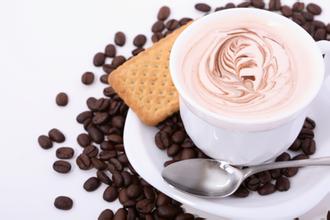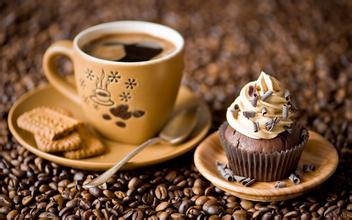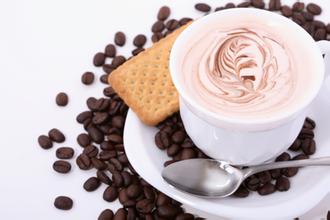Introduction of Rwandan Coffee Flavor and Taste Manor characteristics of Rwandan Coffee beans in Chilmel Manor
In early 2003, UCR distributed Maraba coffee through Sainsbury's supermarket and sold it in 350 of its stores until Red Nose Day. In 2003, the Abawuzamgambi cooperative earned a net profit of $35000. Seventy per cent of that amount was distributed to farmers at a price of $0.75 per kilogram, more than three times the profits made by other Rwandan coffee growers and enough to cover previously unaffordable health care and education services. The remaining 30 percent is invested back in the cooperative and used to purchase calcium carbonate, an agricultural lime that reduces soil acidity caused by rainfall loss of minerals.
coffee beer
Since 2003, PEARL has gradually reduced its financial support to the Abawuzamgambi cooperative, considering it self-sufficient. Cooperatives provide loans to growers to help improve their living standards and can invest in livestock, health insurance and education. A cooperative bank opened in the village in March, empowering farmers to maintain and manage their savings locally rather than having to travel long distances to Butare.
In late 2004, Meantime Brewery in London began serving coffee beer made from Maraba beans. The drink is positioned as an alcoholic iced cappuccino or digef. The brewer chief tasted coffee from all over the world and decided to add trace amounts of vanilla and chocolate to maraba coffee, which tasted better than using nut coffee and bitter coffee from South America. The original beer, with an alcohol content of 4% and the same caffeine content as coffee, was described as having a "silky and mellow style." Coffee and beer are sold in large Sainsbury's outlets and in some pubs and clubs. The drink was one of only two beers on the UK market with Fair Trade approval until 2006, when lowering the coffee ratio and increasing the alcohol content (now 6%) caused it to lose its Fair Trade status. Coffee beer is still made from maraba coffee beans and is the only authorised coffee beer in the British Isles, winning a gold medal in the coffee flavoured beer category at the 2006 World Beer Cup.
In 2006, Sweden's Minister for Development and Cooperation and Deputy Minister for Foreign Affairs, Carin Jamtin, visited Malaba to expand cooperation between Sweden and Rwanda and promote Malaba coffee to the Swedish specialty market. In July 2006, a telecentre opened in Malaba, coordinated by PEARL, USAID, NUR and Washington State University (WSU). The Center to Bridge the Digital Divide (CBDD) provides funding and resources. Three WSU students spent six weeks in Rwanda helping to set up the center and train local staff. The centre is now run by local staff.
Geography and Climate Edit
Maraba coffee is grown in southern Rwanda, about 12 km (7 mi) from Butare and 150 km (93 mi) from the capital, Gigali. The project began in the Malaba area of Butare province, but was succeeded by local government organizations in 2006, and the area is now part of the Huye region of Southern province. Due to its proximity to the Great Rift Valley and the Nunwe Forest Mountains, this zone has many slopes, steep terrain and fertile volcanic soil. Coffee is grown at altitudes of 1700 to 2100 meters (5,577 - 6,889 feet), usually on steep hillsides. The zone also has an average annual rainfall of 115 centimetres (45 inches). Most of this comes from the rainy season between March and May, which is also the main coffee harvest season. Temperatures at higher altitudes are slightly lower, averaging about 20°C (68°F), with small seasonal variations

Important Notice :
前街咖啡 FrontStreet Coffee has moved to new addredd:
FrontStreet Coffee Address: 315,Donghua East Road,GuangZhou
Tel:020 38364473
- Prev

El Salvador Coffee Flavor Taste Manor Manor production area introduces Renas Manor
El Salvador's coffee accounts for 40% of the country's exports, and it is usually picked in November, December and January-March of the following year. The export of raw beans lasts almost all year round. Coffee is produced in seven of the country's 14 provinces, with the largest number in the northwestern provinces of chalatenango and santa ana. The coffee produced in El Salvador is 100% Arabica, of which 68% is
- Next

Coffee Flavor and Taste Manor in Tanzania introduction to Arusha Coffee Manor
Tanzanian coffee is mostly washed. After picking, coffee farmers will send the coffee fruit to the nearest processing plant for processing. The treatment step of the water washing method is to screen and remove the impurities in the coffee fruit, then remove the coffee pulp and exocarp, send it into the fermentation tank, and remove the pectin layer from the inner pericarp by fermentation. Clean
Related
- Does Rose Summer choose Blue, Green or Red? Detailed explanation of Rose Summer Coffee plots and Classification in Panamanian Jade Manor
- What is the difference between the origin, producing area, processing plant, cooperative and manor of coffee beans?
- How fine does the espresso powder fit? how to grind the espresso?
- Sca coffee roasting degree color card coffee roasting degree 8 roasting color values what do you mean?
- The practice of lattes: how to make lattes at home
- Introduction to Indonesian Fine Coffee beans-- Java Coffee producing area of Indonesian Arabica Coffee
- How much will the flavor of light and medium roasted rose summer be expressed? What baking level is rose summer suitable for?
- Introduction to the characteristics of washing, sun-drying or wet-planing coffee commonly used in Mantenin, Indonesia
- Price characteristics of Arabica Coffee Bean Starbucks introduction to Manning Coffee Bean Taste producing area Variety Manor
- What is the authentic Yega flavor? What are the flavor characteristics of the really excellent Yejasuffi coffee beans?

